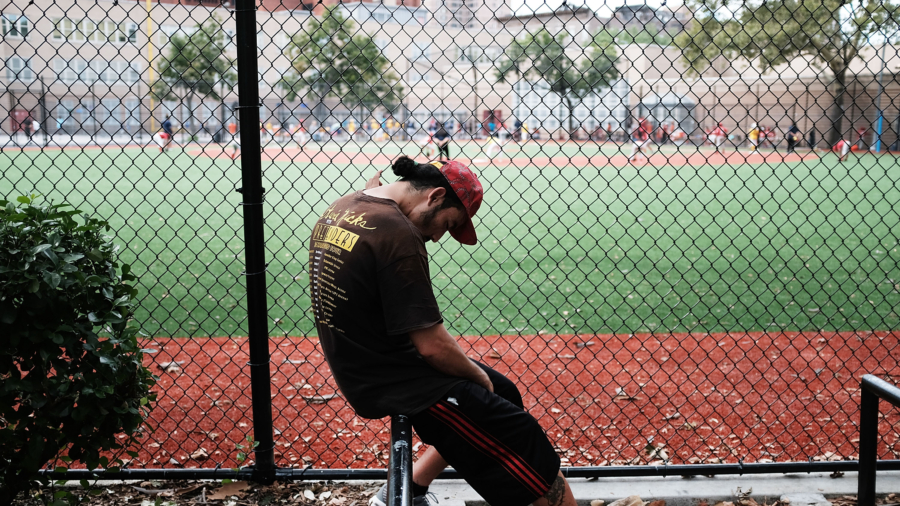A new study finds that spanking and other disciplinary actions can negatively impact children’s behavior down the road for much longer than originally thought.
Researchers at the University of Missouri said that past research showed spanking had negative consequences only in the short term—less than one year between discipline and development.
But a new study from the university said that spanking infants as young as 15 months old negatively impacts temperament and behavior later in the fifth grade and into their teen years. They found that it was vastly more prominent in African-American children than those of European origin.
“How parents treat their children at a young age … significantly impacts their behavior,” said Gustavo Carlo, co-author, professor of diversity and director of family policy and research.
“It is very important that parents refrain from physical punishment as it can have long-lasting impacts. If we want to nurture positive behaviors, all parents should teach a child how to regulate their behaviors early,” Carlo said in a news release.
The team of researchers published their report on June in “Developmental Psychology.” Carlo’s team analyzed data from 1,840 mothers and children who were at or below the federal poverty level and were either of European or African descent. Data was collected from when children were about 15 months old, 25 months old, and in the fifth grade.
Researchers used surveys of mothers and children, home visits, and interviews with fifth-grade teachers to complete the study.
The study found that parents using severe punishment on infants increased aggressive and delinquent behavior in the fifth grade but only in African-American children. They were also less likely to show positive behavior, such as helping others.
Carlo said that that self-regulation discipline leads to better behavioral outcomes as well. He also stressed that the study does not suggest that every child exposed to physical discipline automatically means ends up with behavioral problems. But it does highlight the likelihood of problems developing later in life.
A parenting expert Carole Lieberman, author of “Lions and Tigers and Terrorists, Oh My! How to Protect Your Child in a Time of Terror” said physical discipline is bad for any child. She also wondered if the parents of the European children in the study were less truthful with how much physical discipline they used.
“With each spanking, children experience physical pain as well as emotional pain as a sign that their parents don’t love them,” Lieberman told USA Today. “Spanking conveys a message to them that they are not good. It causes them to become aggressive later on in their lives.”
READ MORE:
Texas School District Approves Paddling to Punish Students

By Bowen Xiao
School officials from a Texas district have approved a controversial way to discipline misbehaving students—paddling.
The policy will allow for paddles, most likely made out of wood, to administer corporal punishment when a student misbehaves at school, USA Today reported.
The board of trustees from the Three Rivers Independent School in Southern Texas approved the new policy on July 18.
Corporal punishment is defined as the “deliberate infliction of physical pain by hitting, paddling, spanking, slapping, or any other physical force used as a means of discipline,” according to the Texas Classroom Teachers Association (TCTA).
Board trustees voted unanimously 6-0 in favor of the motion—one member was absent. The policy states that the disciplinary measures can only be used by a campus behavior coordinator or principal, USA Today reported.
Parents will be able to decide whether to opt in or out of the new policy upon registering their children for the next school year.
“If the parent is not comfortable with it, that’s the end of the discussion,” the school district’s Superintendent Mary Springs told the Caller-Times.
Texas is one of 15 U.S. states where corporal punishment is legal, and eight other states have no law prohibiting it.
The new policy at the Three Rivers Independent School District is set to begin at the start of the 2017-2018 school year.
In November, former Education Secretary John B. King Jr. sent a letter to state leaders urging a ban on the use of corporal punishment in schools. King argued that the practice is linked to harmful short-term and long-term effects for students, USA today reported.
Kings letter cited a study concluding that students who received physical punishment at school showed an increase in aggressive and defiant behavior in the short-term. In the long term, however, students were more likely to grapple with substance abuse and mental health issues, including depression, personality disorders, and post-traumatic stress.

